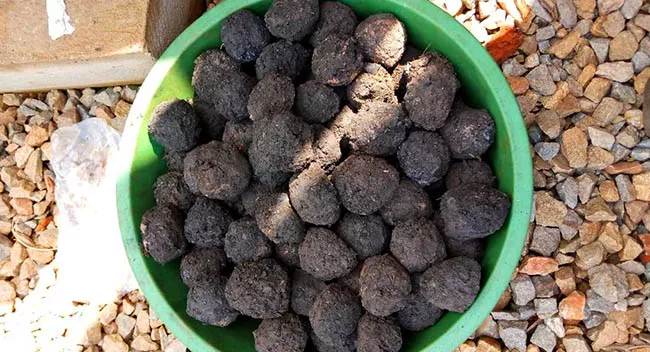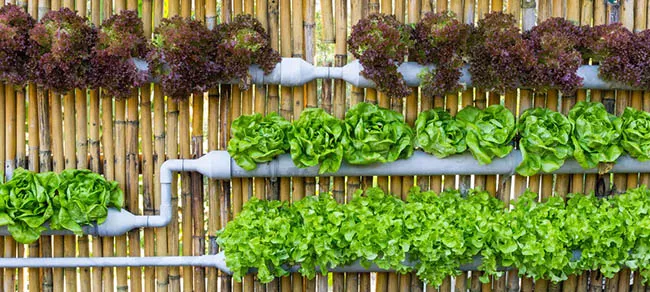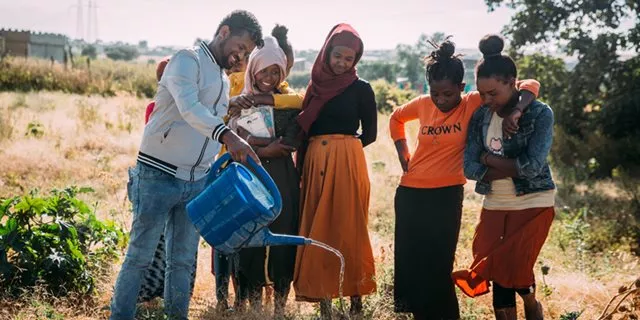Climate protection and child protection go hand in hand: Green projects mitigate impacts
The warning signs are all around us. Dried fields, massive forest fires, unbearably hot summers and drought. In other regions of the world, these consequences are much more pronounced: intense storms devastate islands in the Caribbean; extreme rainfalls flood Bangladesh, and persistent droughts destroy crops in Zambia.
The New York Times reported that 40.5 million people across the planet were displaced in 2020—the most in 10 years—largely due to the impacts of climate change such as rising sea levels, heat waves, storms, drought, and wildfires.
And the numbers of so-called climate migrants will continue to grow dramatically. A World Bank report warns of 200 million climate migrants by 2050, the vast majority of whom will remain in their own country after leaving their home regions.

Climate change threatens the world's poorest, especially children
SOS Children’s Villages knows that people who live on a subsistence level are especially threatened by the consequences of global warming.
The consequences of climate change can hit families at their core. Extreme weather events such as droughts, storms, heavy rainfall will increase, stressing many families whose livelihoods depend on farming, fishing and agriculture for their livelihood. The stress of having their life upended can lead to problems in the family such as domestic violence, financial problems, hunger, all of which can lead families to breakdown.
In turn, children within vulnerable families suffer both immediate and secondary consequences of the climate crisis.
SOS Children’s Villages supports families around the world in regions particularly affected by climate change – such as East Africa, Zambia, and Ethiopia. We are committed to help them adapt to a changing climate by protecting land productivity, access to clean water, food security and livelihoods.
The model: Environmental protection + Poverty reduction
SOS Children’s Villages provides innovative solutions for families impacted by the climate crisis. Our projects are holistic – we support families to prepare for the consequences of climate change by working with them to increase soil fertility, install water-saving irrigation technology, and provide drought-resistant seeds.

Children and young people receive environmental education. We train young people and adults in sustainable professions in order to broaden their job prospects. We also redesign our SOS Children's Villages to be environmentally and climate-friendly.
Those who are faced with the choice of being able to feed their own children or protecting the climate will usually opt for the former. That is why it is so important to offer people not only knowledge about the climate crisis, but also alternatives to climate-damaging lifestyles.
East Africa: Combating deforestation with CO2-neutral ovens
Cooking with wood is widespread in parts of East Africa. To counteract deforestation in this area, we work with the community – training women to build energy-saving stoves and to produce pellets from biomass (i.e., from leaves and branches). The biomass pellets counteract deforestation, and the stoves are a CO2-neutral solution for cooking.

The women earn an income by selling the stoves and pellets. In addition, the low-smoke ovens reduce damage to their health.
Zambia: Ensuring food safety with hydroponics
Many rural families in Zambia are poor, and malnutrition is a common problem. The droughts of recent years have exacerbated hunger. That is why the SOS Children's Villages supports farmers to develop sustainable and water-saving cultivation methods.
Instead of growing in the field, plants grow in vertical plastic pipes with a closed water circulation system. This type of agriculture is called hydroponics, and it uses much less water than traditional farming. In addition, this cultivation method means that the families do not need to worry about drought or heavy rainfall, or rely on pesticides.

Whether in a slum or in the country, this cultivation method makes people independent of the rainy season and eliminates the problem of malnutrition. Young people are learning about this new cultivation method, which prepares them for “green” jobs of the future.
Ethiopia: Youth train their elders in new farming techniques
Ethiopia suffers from frequent droughts as a result of global warming. This is hard on the countless families who rely on farming to earn a living. SOS Children’s Villages established a Climate Protection Project in Ethiopia, whereby 2,845 school children have planted trees and learned about sustainable agriculture, irrigation, and cultivation. In turn, the youth then passed this knowledge on to their families and village communities. This way, environmental awareness spreads in the community and people learn to adapt sustainably to the consequences of the climate crisis.

As part of the project, we are also committed to planting 17,000 trees to participate in a national afforestation initiative established by the Ethiopian government. They have committed to planting 20 billion trees over 5 years to counteract climate change.
Children deserve a liveable planet
With projects like these, SOS Children's Villages is contributing toward a safe, sustainable future for children and families around the world.
Given the urgency of the climate crisis, protecting children necessarily involves the promotion of a healthy planet. It requires a “whole-of-society” response, as outlined by UNICEF:
- Critical services must be adapted, including water, sanitation and hygiene systems, health and education.
- Greenhouse gas emissions must be cut by 45% before 2030.
- Children must be provided with climate education and green skills to ensure their adaptation to and preparation for the effects of climate change.
- Young people must be included in all national, regional, and international climate negotiations and decisions.
- Recovery from the COVID-19 pandemic must be green, low-carbon and inclusive.
